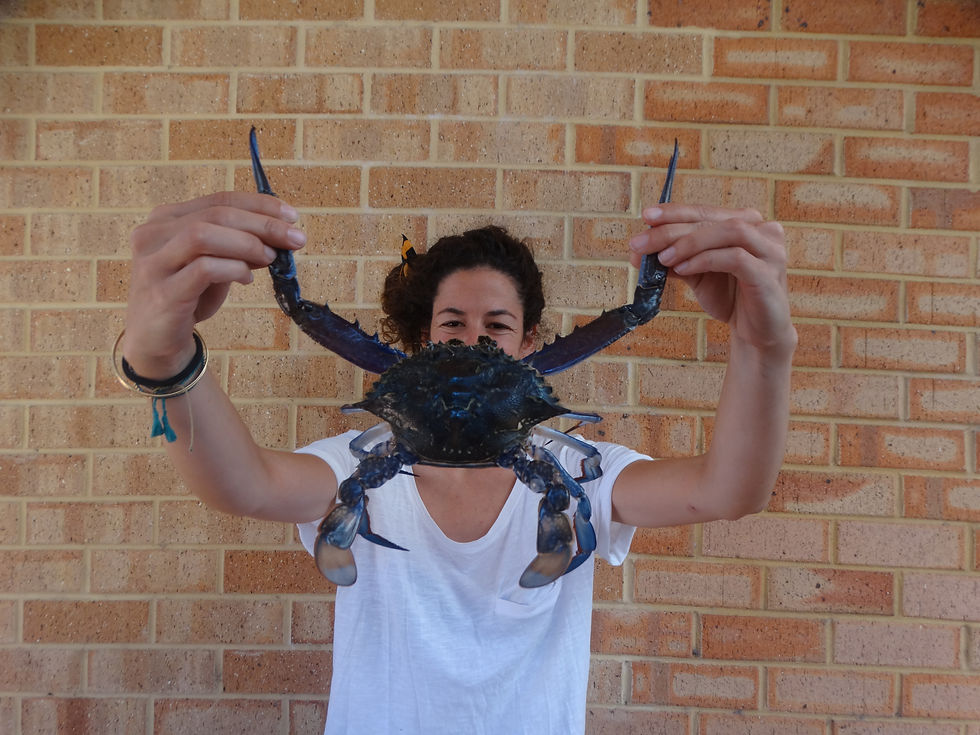It's always nice to win awards
- James Tweedley
- Aug 31, 2019
- 2 min read

Clara was successful in her application to the Estuarine & Coastal Sciences Association for funds to attend the Integrated Marine Biosphere Research (IMBeR) in Brest, France, where she was joined by 600 scholars from 30 countries.
Clara presented a poster on the significance of network structure for fisheries management. Specifically, she described how network structure affected information sharing between stakeholder groups forming the Blue swimmer crab fishery network. Results showed that i) the main channels for information exchange used by Government agencies with other stakeholders (official website, reports, licensing, etc) seemed effective for sharing information with commercial fishers, but less so with the recreational sector; ii) stakeholders, such as Universities and recreational fishing organisations, were the least connected groups in the network; iii) recreational fishers and managers generally considered public events that shared information on the management status of crabs(i.e. meetings, public talks, festivals) as non-informative and infrequent.
During the IMBER conference, Clara also participated in the “Visioning Global Ocean Futures” workshop, organised by the Intergovernmental Science-Policy Platform on Biodiversity and Ecosystem Services (IPBES). She is now part of a collaborative project, which will result in a manuscript being produced next year.
Attending the IMBeR conference gave Clara a greater understanding of how important interdisciplinary research is and allowed her to present and validate part of her research. The networking opportunities throughout the week, combined with the cultural diversity of the attendees, enabled her to meet fellow early career researchers and establish new collaborative relationships.
Clara is extremely grateful for the funding provided by ECSA, which allowed her to attend this prestigious conference, present and validate one research component of her PhD, as well as create further connections with scientists worldwide, which is key for an early career scientist.










Comments